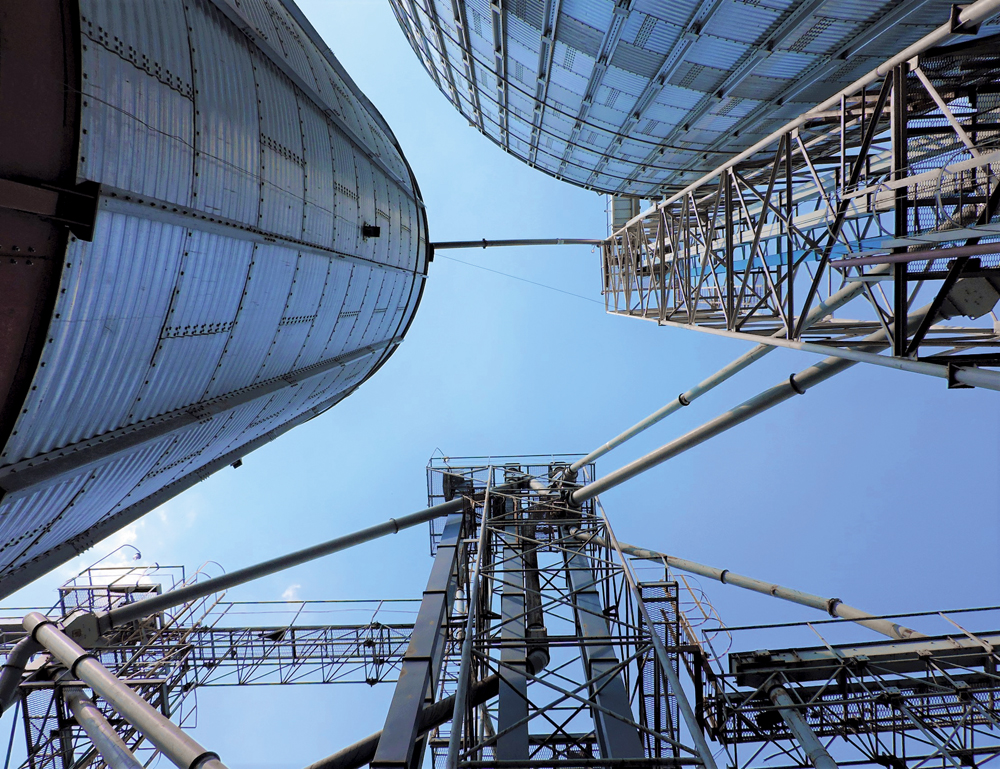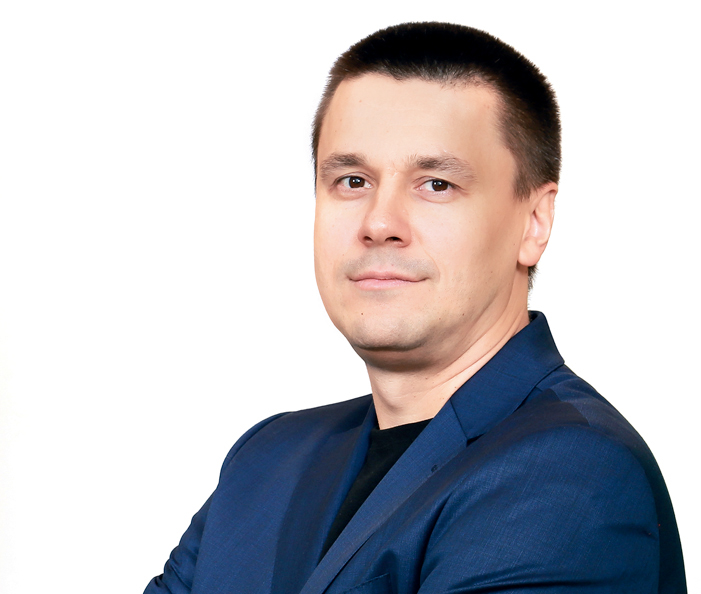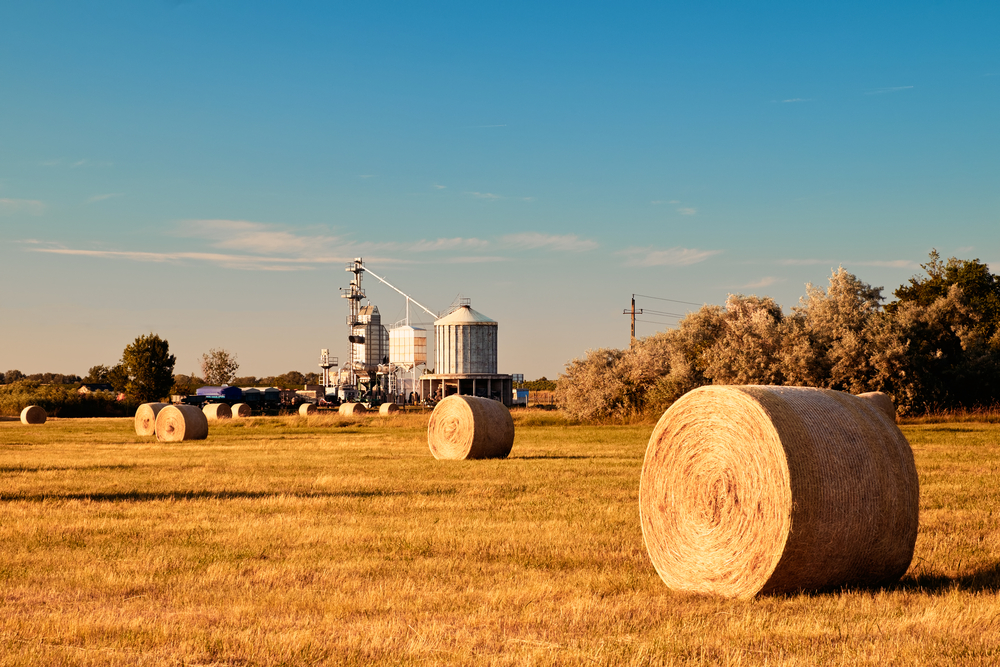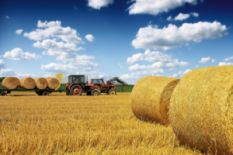Your company was established in Luhansk in late 2013 amid the revolutionary confrontation in Ukraine. Several months later, Agricom Group moved its office to the capital. How did the company's new history start?
This was a period when we began to think not about survival, but about the formation of business. In 2014, we got busy forming a new strategy for the company's development. We had only 5-6m dollars, which was not enough to launch a big project. Besides, the company cultivated 15,000 hectares of land and was about to add an additional 5,000 hectares, which required considerable funds. We tried to analyse the situation, looking for opportunities rather than focusing on the problems.
Such opportunities emerged in late 2014. A company with the land bank of 6,000 hectares in Chernigiv Region was facing bankruptcy and therefore was looking to sell its assets. Certainly, in our situation, it was difficult to imagine that we could plan any acquisitions. It looked like a reckless idea. Nevertheless, we decided to close the deal, which gave an impetus to our further development.
The company's development plan for the next three years provided for an expansion of the land bank up to 60,000 hectares, as well as the purchase of a feed mill and two elevators. Overall, the plan can be considered fulfilled. Except for the land bank.
What kept you from building up the land bank?
Positive changes in the country and on the market. The situation in Ukraine began to change for the better sooner than expected. The situation in the world agricultural markets is also encouraging. All these factors had their influence on the land market. Rent prices soared unreasonably. We are not ready to pay 1,500 dollars per hectare even for a 70-year-long lease because we cannot see how we can recoup the investment. By the end of 2017, the company's land bank included around 40,000 hectares, including about 10,000 hectares in Chernigiv Region. We also bought a feed mill there.
Were these acquisitions made at the company's own expense?
We bought the first company in Chernigiv Region using own money, having reinvested some profits. In 2015, we were able to show our efficiency and attract a partner company that invested 14m dollars in the purchase of a bankrupt agricultural company in Rivne Region and the above-mentioned plant which will produce cereals and flakes.
From 2014 to 2017, Agricom Group nearly doubled its turnover. Was it thanks to crop farming and grain exports?
Yes, the company's turnover in 2014 was around 9m dollars, in 2015 around 12m dollars, and we finished 2016 with 17m dollars. Apart from crop farming, we continue to develop distribution. The company placed orders for products under its own trademarks (Dobrodiya, San Grano, Super Hercules) with other enterprises. We saw a significant growth in this segment. From now on, they will be produced at our recently-opened plant.
What is the share of finished products in the company's sales?
Over 10% or around 3m dollars. The rest, 22-23m dollars, comes directly from the sale of agrarian products.
How will the revenue mix change when your own plant is launched?
I think that during the first year of the plant's operation, the FMCG share in the company's total turnover will reach 20% or up to 6-7m dollars. Revenues from the agrarian sector in absolute terms will also grow up to 25-26m dollars.
How do you plan to increase revenues from the agrarian sector?
First of all, by introducing new technologies and improving crop rotation. We will continue to improve the efficiency of business processes and reduce costs. For example, every year the company increases the yield of wheat by 500 kg per hectare. Today we are trying to ensure uniform growth in all clusters in Luhansk, Chernigiv and Rivne regions.
Are you planning to further build up your land bank? In what regions?
Yes. We are looking at western Ukraine, the northern areas of the central part of the country, and we would like to expand our presence in the north of Luhansk Region. By the way, it is easier to do agricultural business in the region today because there is almost no serious competition there.
The company planned to invest around 7m dollars in a cereal production plant. Did you stay within the budget?
Unfortunately, we surpassed the budget, having already invested around 10m dollars in the project. We want it to be the most advanced plant in Europe indeed (with production capacity of 1,200 tonnes of cereals per month) without compromising on quality. By the way, many prices went up during the 18 months during which the plant was built.
How fast are you planning to recoup the investment?
In five or six years, I think.
How much of the finished products will you export?
We already export products under our trademarks. When the plant is launched, initially we are planning to export 70% of our products, later we will sell the same share in the domestic market. For this to happen, serious efforts should be taken for imported products to give way.
What is the company's share of the Ukrainian market of cereals?
We evaluate the market of non-extruded cereals at 3,000 tonnes, and our share is 10%.
In which segments are you planning to expand your presence?
We are looking for our own niche in the segment of branded flour, which we order from our partners. The company is increasing sales and planning to build its own flour mill at the same site where cereal production is located. We are also considering the use of modern technologies for extrusion – with special heat treatment of raw materials without adding sugar. In general, we are planning to invest in Research and Development that will be looking for new technologies, recipes, innovative packaging and so on.
What kind of advice would you give to potential investors in Ukrainian agriculture?
For sure, they know better than I how and in what to invest. Speaking from experience, I can only add that before you buy an agrarian company, you should scrutinise its history. Do not be tempted by the company's good balance without a clear understanding of how this balance was formed. Very often formally successful companies bring tonnes of problems to their new owners. The second point is that you need to invest not just in a reputable balance but in the ideology. The same applies to attracting investors. While raising funds, think about the ideology of the investor's business, not just its capacity.
Agricom Group is a company with an ideology, a leader in terms of the use of IT and control processes in agribusiness. We introduced several know-hows which made us very effective and efficient in this industry. Investors also take into account a psychological profile of people they are going to work with. We had several potential investors with big capital but we failed to find common ground over differences in basic values. We had conflicting views on the role of a person in business processes, the tasks of top management, and ways of doing business and paying taxes.
We are not the company which runs schemes, and God forbid we turn into one. The philosophy of our shareholders and staff is based on the faith in the right business and readiness to invest efforts and money in it.
Are investors showing interest in your company?
Constantly. We are now considering five potential investment projects at once. We are in talks with shareholders to decide whether we should develop proactively and attract investment next year, or focus on streamlining the existing business processes and directions.
In any case, if we find an investor who is on the same page with us and will make our team stronger, our door is always open.
Are foreign or domestic investors taking interest?
Both. Whereas two years ago we mostly communicated with domestic investors who were well aware of local specifics and risks, currently up to 70% of inquiries and proposals comes from abroad. What is most interesting is that we are talking about big investment (not 10-20m dollars). So, we can conclude that billions of dollars will very shortly be invested in the Ukrainian agrarian sector alone.








